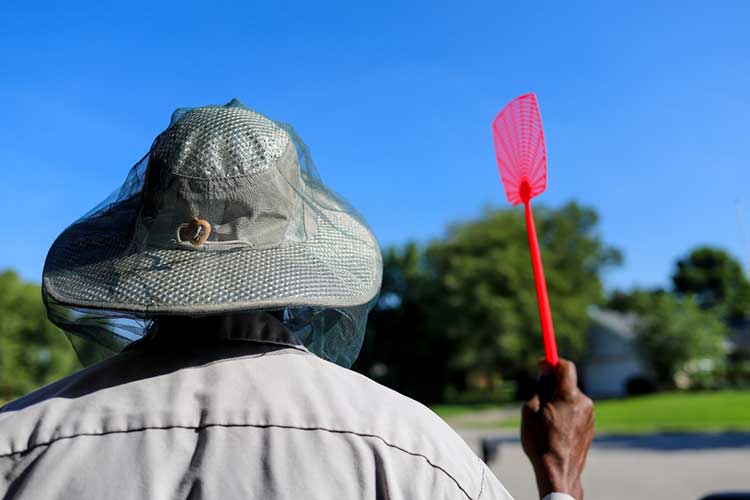Do Effective ‘Natural’ Pest Control Remedies Exist?
Last updated November 2024

Many companies claim to practice “green” or “natural” pest control. But is it real, and does it work? To keep crawlies at bay, you need to prevent them from getting what they need to live and reproduce. Most methods require no pesticides—for example, maintaining clean kitchens, vacuuming frequently, eliminating water leaks, and sealing possible entry points.
But when infestations occur, more drastic measures may be required.
Modern pesticides are safe to humans if used properly. And for most pests, there are also non-chemical options. Here are ones exterminators often use:
Termites
Some services have experience using microwaves to cook termites and their colonies. But microwaves are generally less effective than pesticides and may damage your home’s structure.
Cockroaches
Many pest control companies consider boric acid a natural remedy. That’s a rather dubious claim, but boric acid is quite safe to humans if used properly. Other options include sticky traps (likely to put only a small dent in a moderate or large infestation) and pyrethrum, the naturally derived form of pyrethroids. Some companies will vacuum infested sites to capture many bugs and eggs, and knock infestations down to levels that can be managed with traps. Peppermint and rosemary oils, which repel or kill many types of insects, might also control small infestations, but they must be applied often.
Bees, Wasps, and Hornets
Instead of using pesticides, professionals can knock many types of nests to the ground and crush them, or relocate bees’ nests (but unless you own a bee suit, don’t try DIY). Peppermint and rosemary oils will eliminate stinging insects, but as one pest control company owner told us: “It will kill them, but not as fast as other products—not nearly fast enough if you’re the one doing the killing.”
Rodents
Can be effectively controlled by closing off points of entry from the outside and placing traps in strategic locations. Humane traps are available for relocating rodents.
Bedbugs
Isopropyl alcohol combined with washing belongings in very hot water is highly effective.
Mosquitoes
Many companies offer to treat yards using “natural” repellents containing “essential oils” that mosquitoes don’t like. And there are dozens of devices you can buy that claim to magically get skeeters to bug off. There’s little independent evidence that these products work.
Burning citronella candles will repel them, but only if there’s no breeze to carry away the smoke. The best natural remedy is to eliminate breeding grounds and habitats.
Ants
Caulking cracks and other access points, and setting out baits, should control most populations. Several effective bait products use nonsynthetic pesticides.
All Bugs
Companies can encase your home in a tent and pump in hot air until the temperature reaches at least 120°F, destroying all the bugs and their eggs. This process is very expensive (thousands of dollars for an average-size house) and disruptive (residents have to remove anything that could be damaged by the heat and live elsewhere for a few days). Further, the amount of energy required to heat the home to 120°F would seem to disqualify this procedure from being “green.”
Be Skeptical
Don’t bother with electronic devices that claim to repel pests with high-frequency sound waves and the like: They don’t work.
Be wary and skeptical of any green services. We’ve found that many companies that claim to provide natural solutions employ the same pesticides and methods used in conventional treatments. Even if a pest control method is labeled “natural” or “nonsynthetic,” read the product safety label carefully. “Natural” is an ambiguous term, and nonsynthetic pesticides still can be harmful to your family and the environment.


